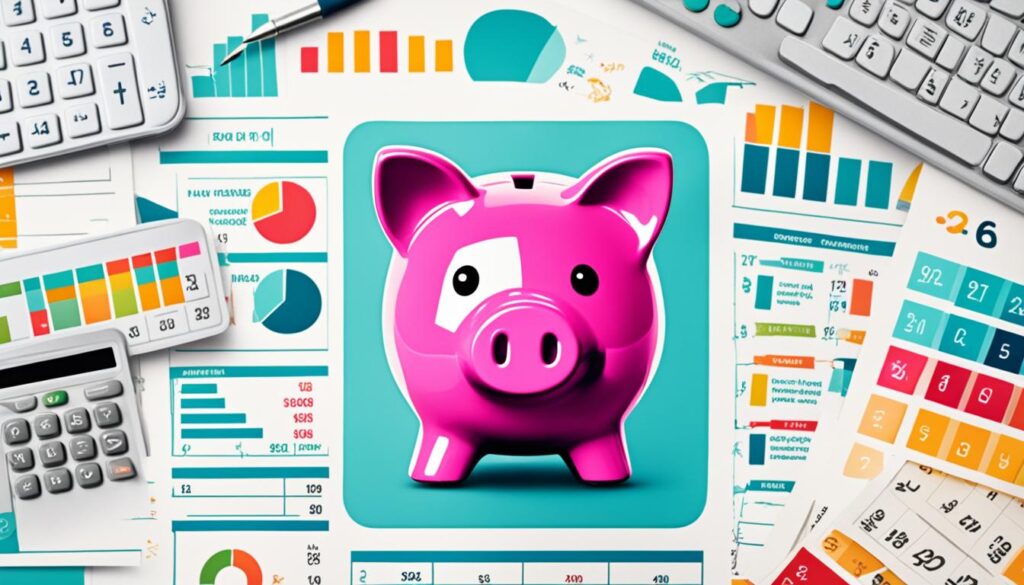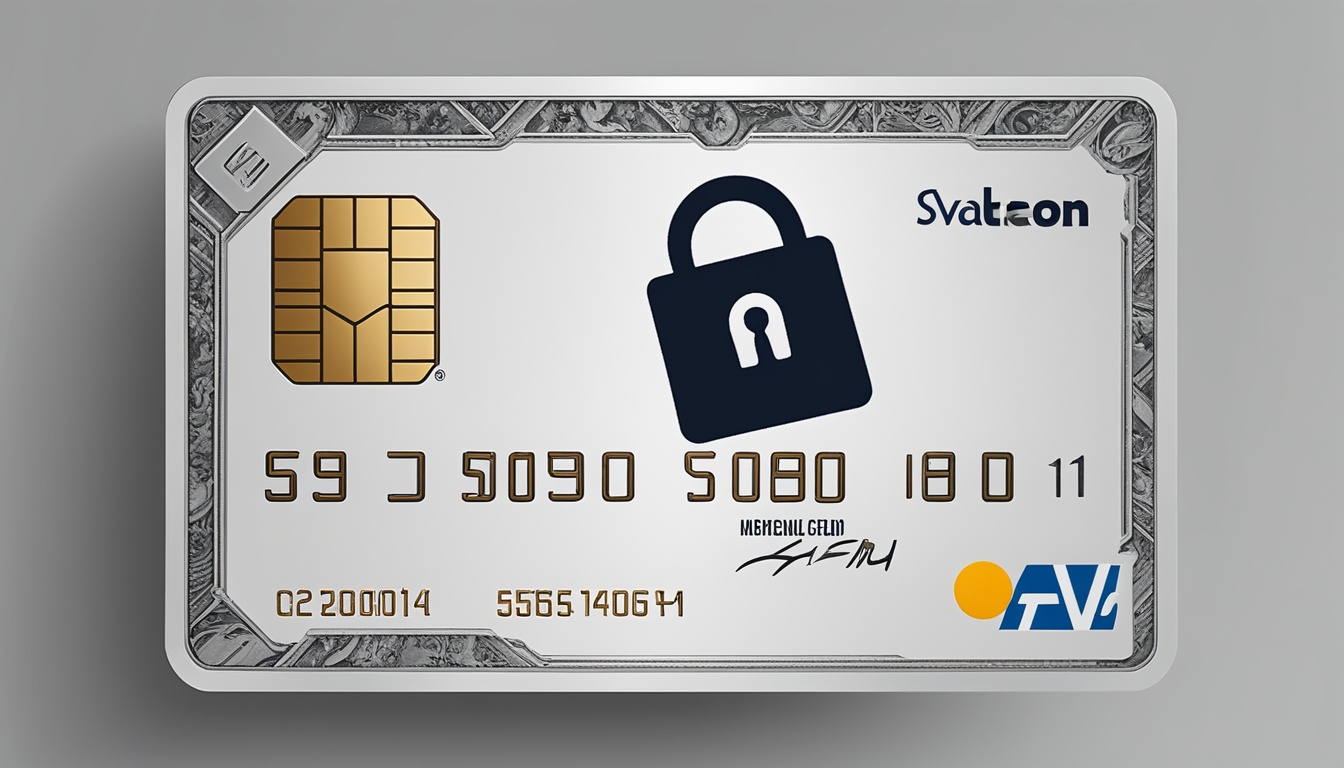Have you ever thought about how a budget makes you more free, not less?
Seeing budgeting as the first step to taking charge of your money is key. A budget doesn’t limit your freedom. It increases it by letting you control your earnings. No matter your financial situation, using top budgeting tips can improve how you handle your money.
Starting with a zero-based budget means every dollar gets a job12. This approach highlights working together on budgeting. It also considers each month’s different needs. Making changes to your budget, like cutting costs, keeps you in line and boosts your finances3. A good budget helps you save more, pay off debts faster, and spend wisely to avoid overspending or piling up debt. This leads to a better financial life.
How to Create a Budget
Creating a budget helps you take charge of your money. List your income and expenses. Track what you spend each month, make changes as needed. This way, you’re in control of your financial future.
List Your Income
Start by figuring out your monthly income. Include your regular pay and any extra money you make on the side. Knowing your total income after taxes helps you plan4.
List Your Expenses
Begin with necessary expenses like food, housing, bills, and transportation. Then, move on to less critical spending. This shows you where you can cut back to save money, especially in areas with varying costs4.
Subtract Your Expenses from Your Income
To manage your money well, subtract your spending from what you earn. This plan makes sure every dollar has a job, which stops you from wasting money and helps you reach your financial goals5.
You can also try the 50/30/20 budget rule. It suggests spending 50% on needs, 30% on wants, and 20% on savings or paying off debt5.
Track Your Transactions
Watching your spending closely shows you where your money goes. It helps keep your budget on track4. Knowing this lets you adjust your spending to better fit your budget goals5.
Make a New Budget Each Month
Life changes month to month, so update your budget to match. Remember to factor in things like holidays or unexpected bills. This keeps your spending in line with your financial aims4.
- Start by listing all anticipated monthly incomes, taking into account salaries and side hustles.
- Category-wise, jot down all your expenses, starting with necessities followed by non-essentials.
- Ensure your budget is zero-based by subtracting expenses from your income.
- Track every transaction for a clear understanding and control of your finances.
- Revisit and adjust your budget each month to accommodate changes in expenditures and incomes.
| Step | Details |
|---|---|
| 1. List Income | Total monthly income including salary and side hustle earnings |
| 2. List Expenses | Categorize expenses starting with essentials (food, utilities, shelter, transportation) and proceeding to non-essentials |
| 3. Subtract Expenses from Income | Ensure your expenses match your income to the last dollar, potentially using the 50/30/20 rule |
| 4. Track Transactions | Monitor all spending to maintain control and adjust as needed |
| 5. Make a New Budget Each Month | Adjust your budget to accommodate any changes in expenses, ensuring alignment with financial goals |
Essential Budgeting Techniques
Mastering budgeting means using smart strategies and spending wisely. By trying different methods, you manage your money better and hit your money goals with ease.
Zero-Based Budgeting
Zero-Based Budgeting is a top method. Every dollar you earn has its place, making your budget end at $06. Start each month by planning. Focus on important areas like gifts, savings, and basics such as food, housing, and travel3. Add a little extra cash for unexpected needs to keep your budget flexible3. Check how you’re doing often and celebrate your wins to stay on track3.
Using Financial Apps
Using financial apps like EveryDollar makes budgeting easier. These tools help you and maybe a partner keep an eye on your money and work together towards shared goals3. They give you smart tips and updates about your spending, helping you make better choices.
Envelope System
The Envelope System keeps you from spending too much. You divide your cash into envelopes for different needs, and only spend what’s in those envelopes. This hands-on approach teaches you the value of sticking to your budget plan and really helps control your finances.
Adding these methods to your finance plan promotes careful spending. This helps you develop wise spending habits and brings you long-term financial security. Choose the strategies and tools that fit your life and goals for a complete way to take charge of your money.
Smart Spending Habits

Learning to spend wisely is key for managing your money well. You can boost your finances by knowing what you really need versus what you just want. Also, setting up automatic payments for bills and savings can make a big difference.
Separate Needs vs. Wants
It’s important to know the difference between needs and wants. Needs are things you must have for a good life, like food, a place to live, and health care. Wants are extras that are nice to have, but you can live without.
The 50/20/30 rule is a handy way to plan your spending: 50% on needs, 20% on saving or paying off debt, and 30% on wants. This plan helps you take care of essentials, save for the future, and still enjoy some treats.
Automate Your Bills and Savings
Using automation makes managing your money easier. By setting up auto-pay for your bills, you avoid late fees and stay on track with payments3. Also, automatic savings help you consistently save money for your dreams, without having to think about it each time3.
This approach keeps you disciplined and lowers the chance of missing out on bill payments or savings goals3. Regular checks on your subscriptions help you stop paying for things you don’t use anymore. This can lead to more savings7.
- Determine monthly expenses and automate payments to avoid late fees and stress.
- Set up automatic transfers to your savings account to ensure consistent contributions.
- Review recurring charges frequently to eliminate unnecessary expenses.
By following these smart spending tips, you adopt solid financial habits. This approach combines essential advice on money management with practical tips for saving.
Practical Saving Money Tips
Managing money right means using clever ways to keep and grow it. It’s about handling now and planning for later. Here are some tips to get better at handling your money.
Build an Emergency Fund
Saving for a rainy day fund is key for staying safe financially. It’s your safety net for surprise costs and helps you stay away from debt with high interest. Try to save up three to six months of expenses for comfort during uncertain times.
Even little amounts saved often can make a big difference. For example, moving money from checking to savings regularly stops you from spending it carelessly and helps you meet your money goals quicker8.
Cut Down on Recurring Charges
Looking closely at your regular bills is another smart way to save. Check your subscription and membership plans to find what you don’t really use or need anymore. Dropping unused streaming services frees up money for things that matter more financially.
Cutting back on yearly non-needed spending, like dining out, which costs about $3,639 every year9, can boost your savings a lot. By packing your lunch instead of buying it, you could save around $1,820 annually8. This extra money can go towards your emergency fund or other goals.
Start using these wise money-saving tips now. They’ll help improve how you handle your finances, save in smarter ways, and boost your money skills for a safer future.
Budgeting Tips for Debt Management

Managing debt starts with a well-thought-out budgeting plan. Focusing on paying off debt, especially using strategies like the debt snowball method, can lead to big improvements. This method suggests clearing smaller debts first for early success, then tackling bigger ones feeling accomplished10.
Prioritize Debt Repayment
Setting aside a part of your income for debt repayment helps a lot. The 50/20/30 rule recommends using 20% of your earnings for savings and paying off debts, speeding up your path to financial freedom110. Also, making SMART goals for your finances improves debt control1.
Cut Up Your Credit Cards
Stopping credit card use is key for managing debts. By cutting up your cards, you keep spending in check and avoid more debt. Keep your credit use under 30% to stay financially healthy1. Also, using cash for all purchases helps stick to your budget1.
Conclusion
Putting smart budgeting tips into practice can strengthen your money management skills. It teaches you to tell needs from wants, leading to smarter spending. Allocating every dollar carefully helps save more and manage debts better. Following the 50/30/20 rule for dividing income into needs, wants, and savings makes financial planning clearer5.
It’s crucial to have an emergency fund. Experts suggest saving enough to cover several months’ basic expenses. This prepares you for unexpected financial hurdles5. Using techniques like the debt snowball or avalanche method can help pay off debts faster. This makes the path to financial freedom smoother11. David Pope Insurance’s tips also help in preparing for emergencies, setting goals, and cutting costs. They offer a complete guide to budgeting12.
Taking advantage of 401(k) plans from your job, especially with employer matching, offers big benefits. You get “free” money, tax savings, and the power of compound interest11. Aiming to save 15% of your salary for retirement, counting your employer’s contribution, makes a secure retirement more reachable5. A good budget helps align spending and savings with your goals, leading to better money control and wealth over time.
Use various saving tips and budget tools to improve how you handle money. David Pope Insurance personalizes insurance and savings to fit your budget and meet your needs. This ensures you get the best coverage without breaking the bank12. With these budgeting strategies, achieving financial stability and independence is indeed possible.
FAQ
What is a zero-based budget?
Why should I list my income when creating a budget?
How do I categorize my expenses for a budget?
What are some financial planning strategies for managing expenses?
How often should I make a new budget?
What are smart spending habits I can adopt?
What are some practical saving money tips?
How can I effectively manage my debts?
Why is tracking transactions important in budgeting?
How can financial apps help with budgeting?
Source Links
- https://www.creditkarma.com/cash-flow/i/budgeting-tips
- https://n26.com/en-eu/blog/budgeting-tips
- https://www.ramseysolutions.com/budgeting/the-truth-about-budgeting
- https://bettermoneyhabits.bankofamerica.com/en/saving-budgeting/creating-a-budget
- https://www.nerdwallet.com/article/finance/how-to-budget
- https://srfs.upenn.edu/financial-wellness/browse-topics/budgeting/popular-budgeting-strategies
- https://www.sunshineccu.com/smart-spending-is-the-secret-to-financial-wellness
- https://www.regions.com/insights/personal/personal-finances/budgeting-and-saving/10-best-ways-to-save-money
- https://www.ramseysolutions.com/budgeting/the-secret-to-saving-money
- https://www.lendingtree.com/personal/budget-to-pay-off-debt/
- https://communityresourcefcu.com/top-5-budgeting-tips-for-beginners/
- https://www.insurancecentermo.com/online-guides/home-budget-guide/conclusion/






